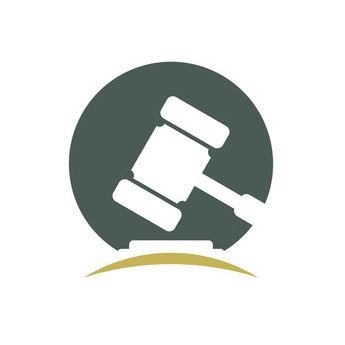Best Employment Rights Lawyers in Guatemala
Share your needs with us, get contacted by law firms.
Free. Takes 2 min.
Or refine your search by selecting a city:
List of the best lawyers in Guatemala
About Employment Rights Law in Guatemala
In Guatemala, Employment Rights are governed by the country’s Labor Code, which sets forth the regulations and standards to ensure fair treatment of workers. Employment rights cover a wide range of issues, including working hours, minimum wage, vacation time, health and safety standards, termination procedures, and collective bargaining rights. The Ministry of Labor and Social Welfare is primarily responsible for enforcing these labor laws and ensuring that both employees and employers adhere to them. Understanding employment rights is essential for fostering a fair and just workplace environment in Guatemala.
Why You May Need a Lawyer
Engaging a lawyer specializing in employment rights in Guatemala might be necessary in several circumstances. Common situations include disputes over unfair dismissal, disagreements regarding wages or unpaid overtime, the need for negotiation in collective bargaining, addressing workplace harassment or discrimination, or seeking compensation for workplace injuries. Additionally, employers may require legal advice to ensure compliance with labor laws, drafting employment contracts, or dealing with tax obligations related to employees. Lawyers can provide invaluable assistance in navigating the complexities of labor laws and protecting one’s rights in legal proceedings.
Local Laws Overview
Guatemala's Labor Code establishes several key aspects relevant to employment rights:
- Minimum Wage: The government sets a minimum wage annually, which varies depending on the industry.
- Work Hours and Overtime: Regular workweek is 44 hours. Overtime work should be compensated at a higher rate as established by labor laws.
- Paid Leave: Employees are entitled to annual vacation, public holidays, and sick leave under specific conditions.
- Contract Types: Includes indefinite, fixed-term, and task-based contracts, each with specific conditions.
- Termination: Employers must have just cause for termination and adhere to severance pay regulations.
- Health and Safety: Employers must maintain a safe working environment, complying with occupational health standards.
- Union Rights: Workers have the right to organize and join unions to negotiate labor conditions collectively.
Frequently Asked Questions
What is the current minimum wage in Guatemala?
The minimum wage in Guatemala varies by industry and is reviewed annually by the government. As it may change, it is recommended to consult the Ministry of Labor for the most up-to-date information.
How can I report an employer for not paying overtime?
Employees can file a complaint with the General Labor Inspectorate, a part of the Ministry of Labor, which will investigate the claim and enforce any necessary actions.
Am I entitled to severance pay if I resign?
In general, severance pay is only awarded if the employer unjustly terminates the employee. If an employee resigns, they typically are not entitled to severance pay.
What should be included in an employment contract?
An employment contract should include job duties, salary, work hours, duration of employment, termination conditions, and other relevant employment terms.
Can I join a labor union in Guatemala?
Yes, all workers in Guatemala have the right to join or form labor unions according to the Labor Code, allowing them to engage in collective bargaining.
How do I handle workplace harassment or discrimination?
Document the incidents and report them to your HR department or, if unresolved, file a complaint with the Ministry of Labor and Social Welfare.
What are the rights and protections for pregnant employees?
Pregnant employees are entitled to maternity leave, job security during pregnancy and after childbirth, and protection from discrimination.
What holidays am I entitled to as paid leave?
Guatemala recognizes several public holidays as paid leave for workers, which include New Year's Day, Independence Day, and others.
Can my employer change my job role without my consent?
Your employer must have your consent for significant changes in your job role unless specified otherwise in the employment contract.
What should I do if I am unfairly dismissed?
Seek immediate legal advice, file a complaint with the Ministry of Labor, and document all relevant details regarding your employment and dismissal circumstances.
Additional Resources
Here are some resources that can help you seek further information or assistance regarding employment rights in Guatemala:
- Ministry of Labor and Social Welfare: The primary governmental body overseeing employment regulations and workplace grievances.
- General Labor Inspectorate: Handles complaints and conducts workplace inspections to ensure legal compliance.
- Local Unions and Labor Organizations: Provide support and information for workers regarding their rights.
- Non-Governmental Organizations (NGOs): Many offer legal aid and advocacy for employment-related issues.
Next Steps
If you need legal assistance in Employment Rights, consider taking the following steps:
- Gather all relevant documents related to your employment, such as contracts, pay slips, and correspondence with your employer.
- Document any incidents, including dates, times, and witnesses, where applicable.
- Consult with a lawyer who specializes in employment rights for tailored legal advice and representation.
- Visit the Ministry of Labor for guidance on how to proceed with your specific situation and any necessary complaint processes.
- Stay informed about your rights and current labor laws through reliable sources to ensure you are aware of any changes or updates.
Lawzana helps you find the best lawyers and law firms in Guatemala through a curated and pre-screened list of qualified legal professionals. Our platform offers rankings and detailed profiles of attorneys and law firms, allowing you to compare based on practice areas, including Employment Rights, experience, and client feedback.
Each profile includes a description of the firm's areas of practice, client reviews, team members and partners, year of establishment, spoken languages, office locations, contact information, social media presence, and any published articles or resources. Most firms on our platform speak English and are experienced in both local and international legal matters.
Get a quote from top-rated law firms in Guatemala — quickly, securely, and without unnecessary hassle.
Disclaimer:
The information provided on this page is for general informational purposes only and does not constitute legal advice. While we strive to ensure the accuracy and relevance of the content, legal information may change over time, and interpretations of the law can vary. You should always consult with a qualified legal professional for advice specific to your situation.
We disclaim all liability for actions taken or not taken based on the content of this page. If you believe any information is incorrect or outdated, please contact us, and we will review and update it where appropriate.
Browse employment rights law firms by city in Guatemala
Refine your search by selecting a city.














